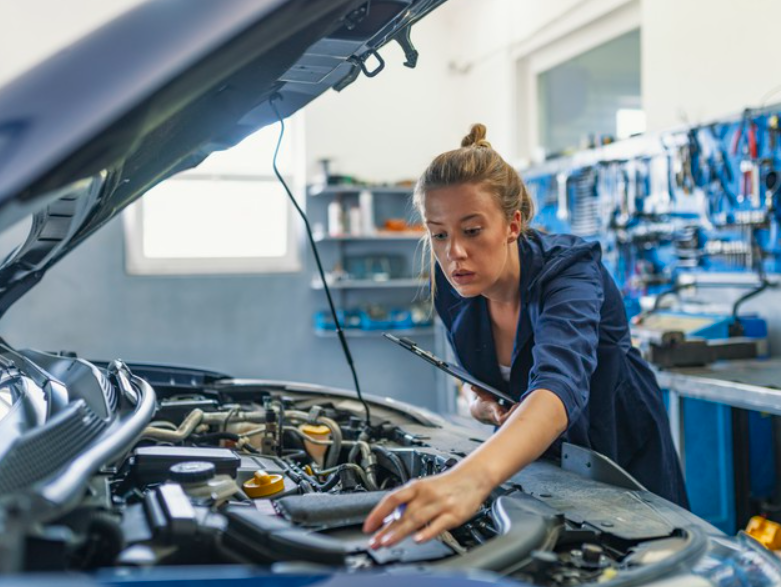As a professional mechanic, you have an incredibly important job to do: ensuring the safe operation of all motor vehicles. To equip you with the knowledge and skills you need, we’ve compiled this comprehensive list of essential concepts that every mechanic should understand. From fundamental safety tips to advanced repair techniques, this blog post covers it all so that you can confidently tackle any automotive challenge. Let’s get started!
Basic mechanics skills
Understanding the basic mechanics is the first and foremost responsibility of a professional mechanic, including:
- Knowing how to properly use and maintain diagnostic tools
- Familiarizing yourself with different vehicle systems such as electrical, braking, suspension, and steering
- Identifying and interpreting various warning signs that indicate potential problems
- Understanding the functions of different vehicle parts and components
- Knowing how to troubleshoot common mechanical issues
- Being able to conduct routine inspections and maintenance tasks
- Having a basic knowledge of engine operation and how to perform tune-ups
Once you master these fundamental skills, you will be well on your way to becoming a proficient mechanic.
Get the right tools as a professional mechanic
Being a professional mechanic is no easy feat: it requires a special set of skills, knowledge, and experience to get the job done right. While you may have the necessary expertise, you must have the right tools too. You can purchase from a distributor for Beta Tools online to add high-quality, reliable tools to your collection. Maybe it can always be handy to have a study guide and a reference book or even subscribe to professional mechanic magazines. These tools will help you stay organized, keep track of your work, and make repairs efficiently.
Safety measures
As a professional mechanic, you need to prioritize safety at all times. Here are some safety measures that every mechanic must follow:
- Wear proper personal protective equipment (PPE), including gloves, goggles, and ear protection
- Always use car stands when working under a vehicle
- Keep your work area clean and organized to avoid accidents
- Avoid wearing loose clothing or jewelry while working on a vehicle
- Be cautious when handling hazardous materials such as gasoline, brake fluid, and battery acid
By following these safety measures, you can protect yourself and others from potential harm while working on vehicles.
Ability to read manuals, diagrams, and schematics
The ability to read and interpret manuals, diagrams, and schematics is a key skill for any professional mechanic. These resources provide detailed information about various vehicle systems, their components, and how they work together.
Mechanics use this data to diagnose problems, perform repairs, and conduct routine maintenance tasks. Schematics offer a visual representation of electrical circuits, which is crucial for troubleshooting electrical issues. Manuals, on the other hand, contain step-by-step instructions for various procedures and offer valuable insights into vehicle-specific quirks. To stay up-to-date with the latest automotive technology, mechanics must be willing to continually learn and adapt, making the ability to quickly digest and apply information from manuals, diagrams, and schematics essential.
Familiarity with laws and regulations
A professional mechanic must have a legal and ethical responsibility to adhere to laws and regulations related to your industry. These may include environmental regulations for disposing of hazardous materials, safety standards for equipment and tools, and labor laws for employee rights.
Mechanics must also be familiar with licensing requirements in their state or country to legally operate as professional mechanics. Staying knowledgeable about laws and regulations will protect you from legal trouble and ensure the safety and satisfaction of your customers.
Awareness of the best practices
There is so much more to success than just being able to fix cars: you need to have a well-organized shop to work in, ensuring that you can quickly access tools and parts whenever you need them.
In terms of customer service, clear communication and a friendly attitude go a long way in building trust with your clients. Billing can be a tricky area, but taking the time to ensure accurate invoices and transparent explanations of services can avoid any misunderstandings later on. When you are mindful of best practices in each of these areas, you can set yourself up for a thriving business with happy customers.
Continuous education and professional development
Finally, to stay at the top of your game as a professional mechanic, you must prioritize continuous education and professional development. This industry is constantly evolving, with new technologies and techniques emerging all the time.
Consider taking courses or attending workshops to expand your knowledge and skills. You can also join online communities or attend conferences to stay connected with other professionals in the field and share insights and experiences.
Becoming a proficient professional mechanic is a journey filled with continuous learning and adaptation. Don’t limit yourself to just acquiring the technical skills but also expanding your knowledge of industry regulations, safety standards, and best practices.
Always strive to improve your customer service skills and stay informed about the latest automotive technologies and techniques. Keep in mind that your growth as a professional mechanic hinges on your ability to repair vehicles and your willingness to evolve with the industry and meet the ever-changing needs of your customers.















